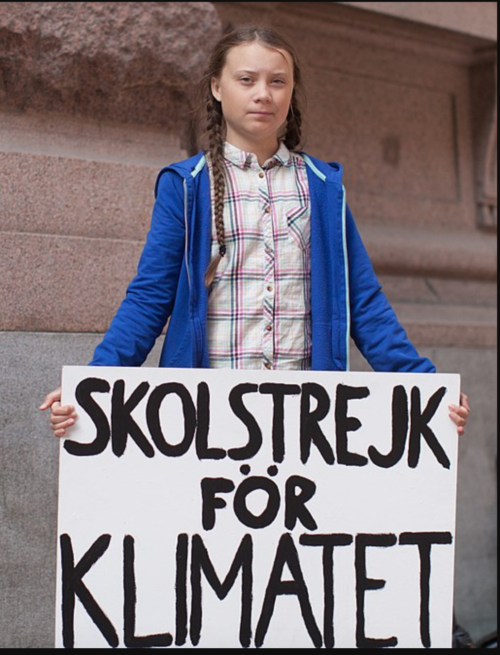
Greta Thunberg is the bookmakers’ runaway favourite to win the Nobel Peace Prize but the Swedish 16-year-old climate activist is a long shot according to leading researchers.
“A prize to Greta Thunberg is extremely unlikely,” Henrik Urdal, head of the Peace Research Institute, Oslo, told a news conference on Friday.
Thunberg doesn’t make his shortlist of possible winners of the prize to be announced in Oslo on Oct. 11.
“I’d be very surprised if she is the peace prize winner,” echoed Asle Sveen, a historian who has written books about the Prize. This year there are 301 nominees on a secret list.
Both said the five-member Norwegian Nobel committee would be reluctant to give what is often a life-defining prize to a 16-year-old, especially since Thunberg shot to fame just a year ago after going on a school strike outside the Swedish parliament in August 2018.
“It would be a huge burden for her,” Sveen said.
Even so, Pakistan’s Malala Yousafzai, shot in the head by the Taliban, won in 2014 aged 17 for her campaign for girls’ rights to education. Malala, the first peace laureate under the age of 30, had been widely tipped to win in 2013 but the committee waited, apparently wary of giving the prize without a longer assessment.
Despite that verdict, Thunberg has convinced bookmakers that she’s worthy.
Paddy Power, for instance, offers odds of 1/3 on Thunberg, meaning a $10 bet will pay just $13.33. That’s far ahead of Ethiopian Prime Minister Abiy Ahmed on 7/4 in second and New Zealand Prime Minister Jacinda Ardern on 9/1 in third.
Since last year, Thunberg has led millions of young people onto the streets worldwide to urge more action to slow global warming. She shamed world leaders at a UN summit in New York on Monday by telling them: “You have stolen my dreams and my childhood with your empty words.”
Thunberg would have to overcome likely resistance to her ideas, not just her age, from a Nobel committee that strives for unanimity.
Committee member Asle Toje, for instance, was appointed by the right-wing populist Progress Party, many of whose members doubt mainstream climate science.
After Thunberg travelled by train to give a speech at a meeting of world leaders in Davos in January 2019, Toje was quoted by Norwegian newspaper as saying: “I don’t have the impression that her little Joan of Arc stunt caused any great enthusiasm in any camp at all.”
In her favour, there are precedents for climate scientists and environmental activists to win.
The 2007 Nobel award was shared by the UN’s Intergovernmental Panel on Climate Change and former U.S. Vice President Al Gore. The 2004 prize went to Wangari Maathai, a Kenyan activist who won for planting trees in Africa.
The 1895 will of Alfred Nobel, the founder of the awards and a Swede like Thunberg, wrote that work for “fraternity among nations” was one of the three possible criteria for winning – easily applicable in the 2004 and 2007 prizes and, in theory, to Thunberg’s work.
But Urdal noted doubts voiced in 2004 and 2007 about whether work to protect the environment really counts as peace. He said it would suit Sudan’s leaders, for instance, to blame conflict in the arid Darfur region on climate change rather than what the International Criminal Court says is government-sponsored genocide.
Thunberg stresses the importance of heeding science above politics.
After the IPCC issued a report in Monaco this week about the dire state of the world’s oceans and a quickening rise in global sea levels caused by a thaw of Antarctica and Greenland, Thunberg said:
“Our main enemy right now is not our political opponents. Our main enemy now is physics. We can still fix this – it is still possible. But not if we continue like now.”
So will Thunberg win?
(The answer comes on Oct. 11 at 11 a.m. Oslo time.)

Also mitigating against an award for Greta; Passing over young environmental leaders like 14 year old Canadian Autumn Peltier, would lead to cries of ‘Nobel so white’.